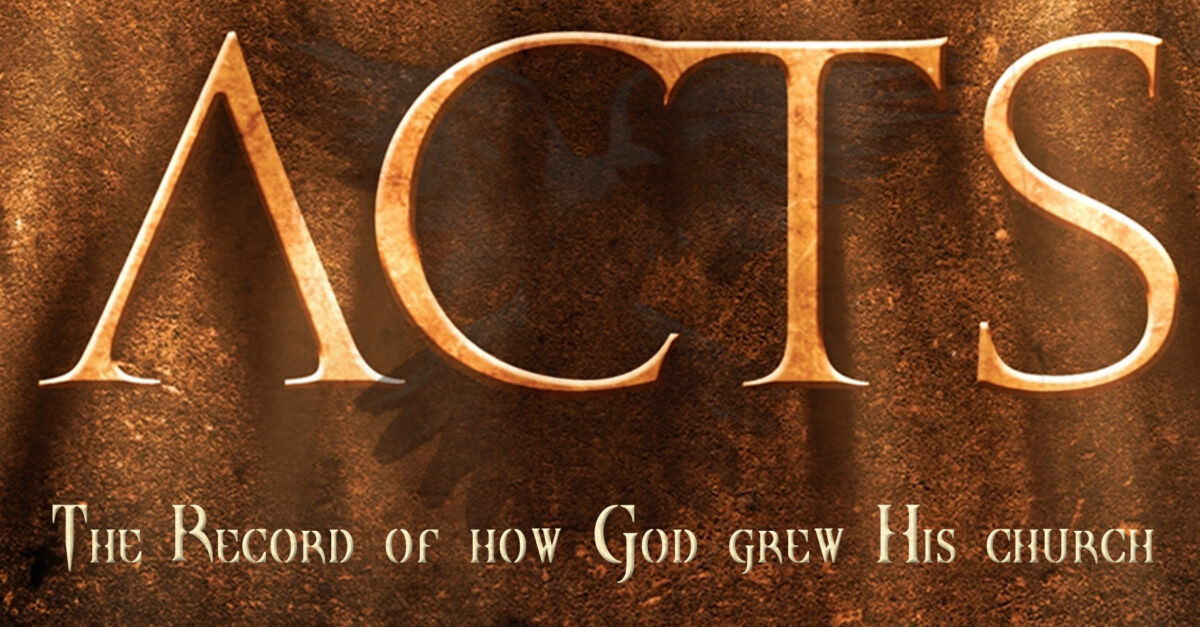Acts 2:14-36 New International Version (NIV)
14 Then Peter stood up with the Eleven, raised his voice and addressed the crowd: “Fellow Jews and all of you who live in Jerusalem, let me explain this to you; listen carefully to what I say. 15 These people are not drunk, as you suppose. It’s only nine in the morning! 16 No, this is what was spoken by the prophet Joel:
17 “‘In the last days, God says,
I will pour out my Spirit on all people.
Your sons and daughters will prophesy,
your young men will see visions,
your old men will dream dreams.
18 Even on my servants, both men and women,
I will pour out my Spirit in those days,
and they will prophesy.
19 I will show wonders in the heavens above
and signs on the earth below,
blood and fire and billows of smoke.
20 The sun will be turned to darkness
and the moon to blood
before the coming of the great and glorious day of the Lord.
21 And everyone who calls
on the name of the Lord will be saved.’
22 “Fellow Israelites, listen to this: Jesus of Nazareth was a man accredited by God to you by miracles, wonders and signs, which God did among you through him, as you yourselves know. 23 This man was handed over to you by God’s deliberate plan and foreknowledge; and you, with the help of wicked men, put him to death by nailing him to the cross. 24 But God raised him from the dead, freeing him from the agony of death, because it was impossible for death to keep its hold on him. 25 David said about him:
“‘I saw the Lord always before me.
Because he is at my right hand,
I will not be shaken.
26 Therefore my heart is glad and my tongue rejoices;
my body also will rest in hope,
27 because you will not abandon me to the realm of the dead,
you will not let your holy one see decay.
28 You have made known to me the paths of life;
you will fill me with joy in your presence.’
29 “Fellow Israelites, I can tell you confidently that the patriarch David died and was buried, and his tomb is here to this day. 30 But he was a prophet and knew that God had promised him on oath that he would place one of his descendants on his throne. 31 Seeing what was to come, he spoke of the resurrection of the Messiah, that he was not abandoned to the realm of the dead, nor did his body see decay. 32 God has raised this Jesus to life, and we are all witnesses of it. 33 Exalted to the right hand of God, he has received from the Father the promised Holy Spirit and has poured out what you now see and hear. 34 For David did not ascend to heaven, and yet he said,
“‘The Lord said to my Lord:
“Sit at my right hand
35 until I make your enemies
a footstool for your feet.”’
36 “Therefore let all Israel be assured of this: God has made this Jesus, whom you crucified, both Lord and Messiah.”
Peter steps up and begins to preach to the people. He spoke verses from the book called Joel (Joel 2:28-32). They describe the Day of the Lord. For Jews, this meant the day when God would change the world. They believed that God would give power to Israel then. (Look at the note about Acts 1:6.) It would also be a day when God would bring terrible judgement. The Jewish people divided time into two ages: ‘The Present Age’ was completely evil and the ‘Age that would Come’. This was the time when God would rule over all. The Day of the Lord separated the two ages.
These strange events at Pentecost happened because God was sending his Holy Spirit to people. The Greek word for ‘send out’ here also means ‘pour out’. This was the beginning of the ‘last period’ before Jesus returns. ‘Last period’ can also mean ‘last days’ in Greek.
A few weeks earlier, people in Jerusalem had seen that the sun became dark. This had happened in the afternoon when Jesus died on the cross.
People cannot save themselves from God’s judgement. But God will save anyone who calls to him. But the person must really want God to help him or her.
Even today, many people think that Jesus should not have died on the cross. They think that it was not in God’s plan. But Peter said here that Jesus’ death on the cross was not a mistake. It was the most important part in God’s plan! Jesus died to save us. He wanted to save us from the results that come from our sin. However, the people who killed Jesus were guilty. They did not have to kill him. They chose to kill him. They had proof that God had sent him. But although this was true, they still killed him.
Those People decided that Jesus must die because it was their judgement on him. But God’s judgement was that he should not remain in death’s power. Jesus’ death was in God’s plan. But his resurrection was also in God’s plan.
Peter used words from Psalm 16:8-11. Peter wanted the people to understand that this prophecy is about Jesus. The prophecy cannot be about David, because David died. His grave was in a famous place near Jerusalem. The Jewish people knew that the Messiah would be a ‘son of David’. This did not mean that David would be his father. David had lived many hundreds (100s) of years earlier. But it meant that David would be his ancestor. God had told this to David.
David was a prophet. In his psalm, he was talking about Christ’s resurrection. He saw that Jesus did not remain dead. Nor did Jesus’ body go bad. ‘ we are all witnesses of it .’ Peter wanted everyone to know what he and the disciples knew.
Forty (40) days after Jesus came back to life, he went to heaven. He is sitting at God’s right side.
In verses 34-35, Peter used another set of scriptures for his proof. This showed that Peter was speaking the truth. The proof is Psalm 110:1. Jesus had already said that this verse was about himself (Mark 12:35-37; Luke 20:41-44). Jesus had said that this would happen. He had said, “Now the Son of Man will sit down and he will continue to sit. He will sit at the right side of the great and powerful God” (Luke 22:69). Jews believed that the word ‘Lord’ here meant God and ‘my Lord’ referred to the Messiah. Certainly, it did not mean David. David did not go straight up to heaven to sit next to God. Jesus is the Messiah. He rules over everything in heaven and on earth.
Peter did not call Jesus ‘Lord’ to be polite. In the Greek Bible, ‘Lord’ is the name that Israel’s people gave to their God. This was the most important part in Peter’s message. Jesus is Lord. He rules over all things.

